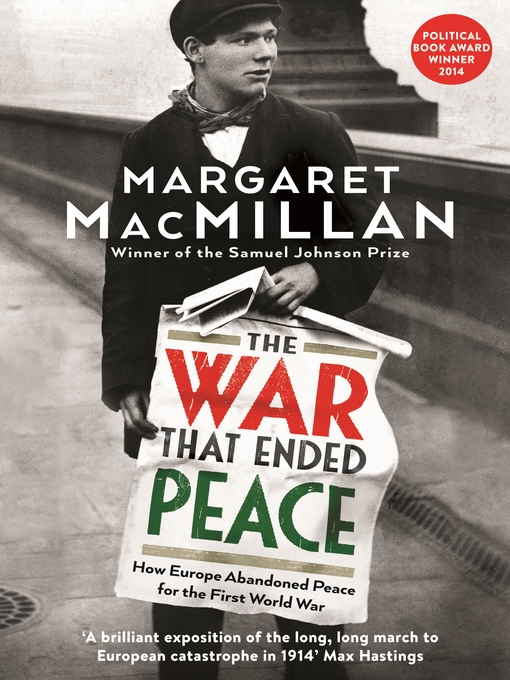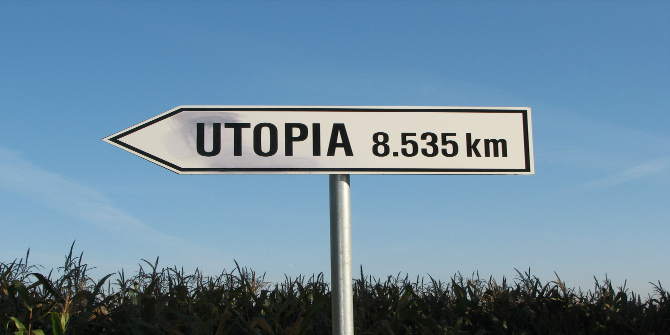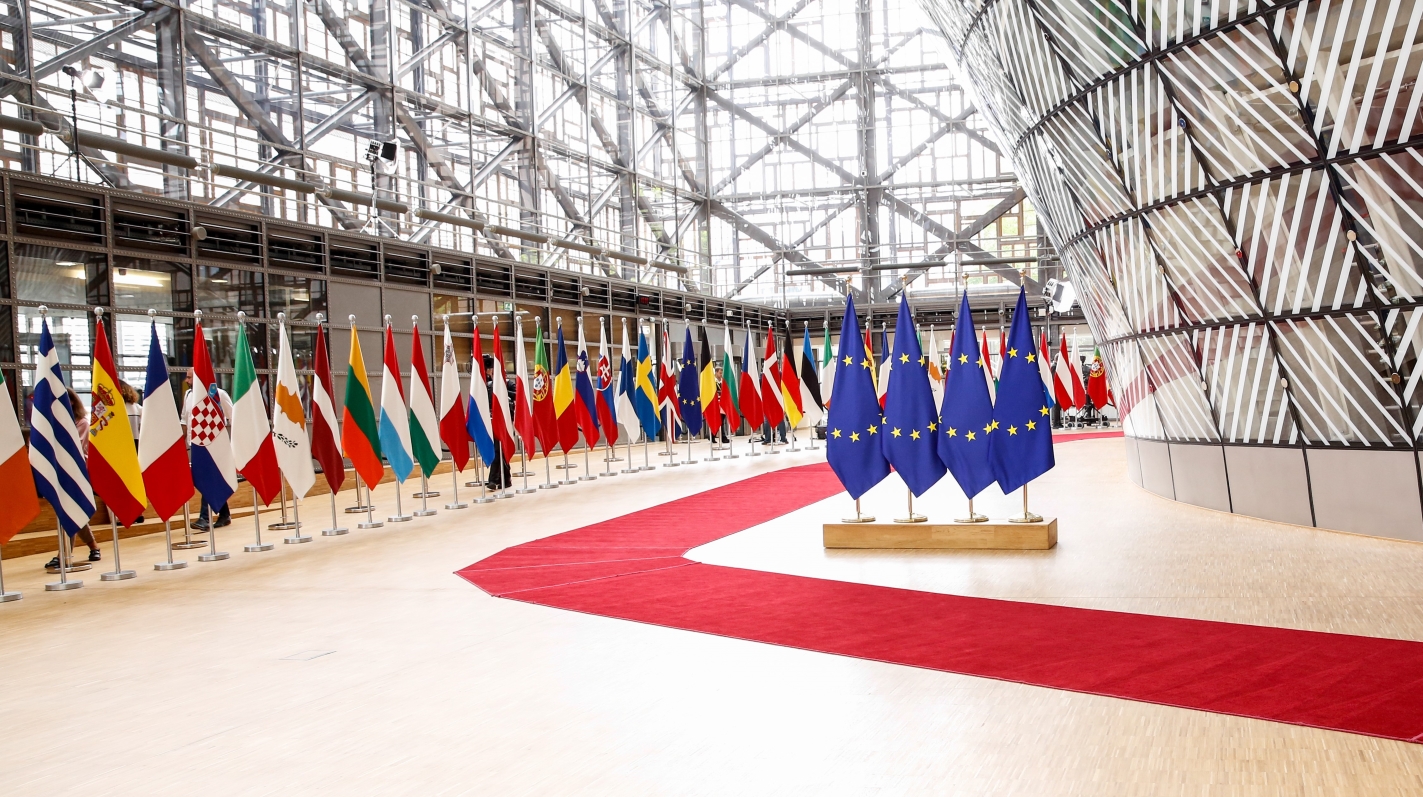2014 marks one hundred years since the start of World War One. Many academics have written on the significance of this conflict, and here we bring together a selection of reviews of books on this topic. Also included is a podcast featuring David Stevenson, Professor of International History at the LSE, on the books on World War I that have had the most impact on his academic career.
Interested in the history of Europe going to war?
The War That Ended Peace: How Europe Abandoned Peace for the First World War by Margaret MacMillan
Beginning in the early nineteenth century and ending with the assassination of Arch Duke Franz Ferdinand, historian Margaret MacMillan sets out to uncover the huge political and technological changes, national decisions and the small moments of human muddle and weakness that led Europe to the First World War. Christopher Prior finds this book effective in providing the reader with a sense of some of the complexities of topics less frequently visited by Anglophone historiography. Read the full review.
Interested in propaganda and public opinion?
Propaganda, Power and Persuasion: From World War I to WikiLeaks by David Welch
In this book, the contributors set out to trace the development of techniques of opinion management from the First World War to the current conflict in Afghanistan. Michael Warren finds that this book makes valuable contributions to a rich body of literature critiquing how leaders, media and other entities shape public opinion, whilst being accessible and thought-provoking to readers new to the subject. Read the full review.
Interested in the conflict in Africa?
World War I in Africa: The Forgotten Conflict Among the European Powers by Anne Samson
World War I in Africa looks afresh at the strategies of the German and Allied campaigns, and at the great rivalry between General Jan Christian Smuts, who took on the German forces in East Africa, and General Lettow-Vorbeck, celebrated as the only German general to occupy British territory and whose troops finished the war undefeated. Although this book is presented as a multi-national study of the war in Africa, its key strength lies in the author’s intimate knowledge of internal politics in South Africa, writes Mahon Murphy. Read the full review.
Academic Inspiration: The books that inspired David Stevenson
In this podcast, David Stevenson, Professor of International History at the LSE, tell us about the books on World War I that have had the most impact on his academic career. Professor Stevenson chaired an event at this year’s Literary Festival titled “Why Remember? Reflections on the First World War Centenary”.
Presented by Amy Mollett. Produced by Cheryl Brumley. Other contributor: David Stevenson. Music courtesy of Nic Bommarito for his song Casiotone Walt on Freemusicarchive.org.
Blog post from LSE Politics & Policy blog: Westminster’s phoney war against Blackadder, by Steven Fielding
 The Education Secretary appears to be on a personal mission to persuade the British to adopt a view of the First World War which emphasizes the ‘patriotism, honour and courage’ of those men who fought in what he describes as a ‘just’ war. Pointing to a survey which reveals only 16% of 18-24 year olds think the war ‘just’ while 24% believe it ‘futile’, Steven Fielding writes that the young’s greater skepticism about the ‘just’ character of World War One probably has less to do with Blackadder than their more general mistrust of contemporary political authority. Read the full blog post.
The Education Secretary appears to be on a personal mission to persuade the British to adopt a view of the First World War which emphasizes the ‘patriotism, honour and courage’ of those men who fought in what he describes as a ‘just’ war. Pointing to a survey which reveals only 16% of 18-24 year olds think the war ‘just’ while 24% believe it ‘futile’, Steven Fielding writes that the young’s greater skepticism about the ‘just’ character of World War One probably has less to do with Blackadder than their more general mistrust of contemporary political authority. Read the full blog post.
Blog post from LSE EUROPP blog: Most wars are not fought for reasons of security or material interests, but instead reflect a nation’s spirit, by Richard Ned Lebow

Why do nations decide to go to war? Based on the extensive study of inter-state wars since 1648, Richard Ned Lebow outlines his analysis of the motivations which underpin warfare. He finds that contrary to the expectations of most international relations theories, wars fought primarily for reasons of security, or material interests, have been relatively rare. Rather, motivations related to a nation’s ‘spirit’, such as the standing of a country or revenge, have been the principal causes of most wars. Read the full blog post.










